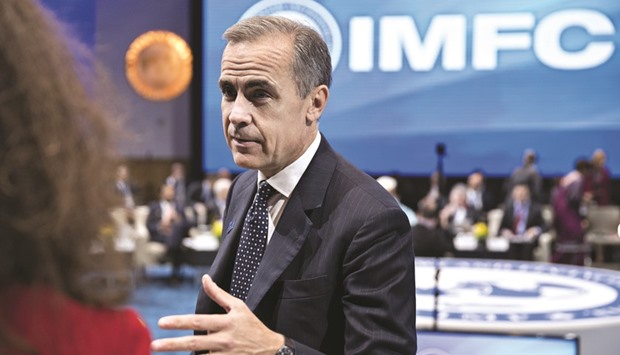Global policy makers are stepping up their resolve to combat an isolationist backlash that threatens to undermine years of opening borders to trade and investment.
“The global economy has benefited tremendously from globalisation and technological change,” the IMF’s top advisory panel said in a communique released yesterday after meetings in Washington. “However, the outlook is increasingly threatened by inward-looking policies, including protectionism, and stalled reforms.”
Flagging public support for globalisation has been a prominent topic of discussion this week among finance chiefs and central bankers convening in Washington for the International Monetary Fund and World Bank’s annual meetings. The IMF warned in its latest economic outlook that rising political tensions over open markets and free trade could undermine a recovery already lacking a growth engine.
This week’s sharp drop in the British pound heightened concerns about the ongoing fallout from June’s decision by UK voters to leave the European Union. US Republican presidential nominee Donald Trump — whose campaign was roiled Friday by the release of a video that includes him discussing groping women — has promised to impose tariffs on countries such as China. Both he and his Democratic opponent, Hillary Clinton, oppose a trade pact with Asia-Pacific nations signed by President Barack Obama, but not yet approved by Congress.
The defense of economic openness has been an increasing hallmark of international gatherings this year, most recently expressed at the Group of 20 leaders’ summit in Hangzhou, China, last month. Yesterday’s International Monetary and Financial Committee statement makes the case for globalisation more stridently than the final communique in Hangzhou, which said nations would “work harder to build an open world economy, reject protectionism, promote global trade and investment.”
In a rebuke to those advocating a turn away from trade, the members of the IMF panel redoubled their commitment to “maintain economic openness and reinvigorate global trade as a critical means to boost global growth.”
“We commit to design and implement policies to address the concerns of those who have been left behind and to ensure that everyone has the opportunity to benefit from globalisation and technological change,” according to the statement by the IMFC, a panel of 24 members that advises the IMF’s board of governors on policy issues.
The global recovery remains slow and uneven, with growth expected to pick up only slightly next year, mostly on account of emerging markets, the panel said. Persistently low growth has exposed “underlying structural weaknesses, and risks further dampening potential growth and prospects for inclusiveness.”
IMF nations reiterated their commitment to use all policy tools — including monetary policy and fiscal policy, as well as structural reforms — to boost growth. They also restated their pledge to refrain from competitive devaluations of their exchange rates.
The IMFC is currently chaired by the governor of Mexico’s central bank, Agustin Carstens, and includes representatives from the US, China, Japan and Germany.
Monetary policy should remain loose in advanced economies where inflation is still below target and output gaps remain negative, keeping in mind central banks’ mandates, the committee said. All countries should use fiscal policy flexibly and make tax policy and public spending more growth-friendly, and structural reforms are key to raising potential growth and must be reinvigorated, the panel said.
The committee said it supported work by the IMF to assess how much space countries have to enhance fiscal policy, as well as research into the implications and side effects of very low or negative interest rates. The panel said it is also looking forward to more work on the impacts of globalisation, emerging technologies and digitisation, as well as the exploring the reasons behind rising inequality in some countries.

Mark Carney, governor of the Bank of England, speaks to an attendee during an IMF Committee governors’ plenary session at the IMF and World Bank Group Annual Meetings in Washington, DC, yesterday. u201cThe global economy has benefited tremendously from globalisation and technological change. However, the outlook is increasingly threatened by inward-looking policies, including protectionism, and stalled reforms,u201d the IMF’s top advisory panel said in a communique released after meetings.
